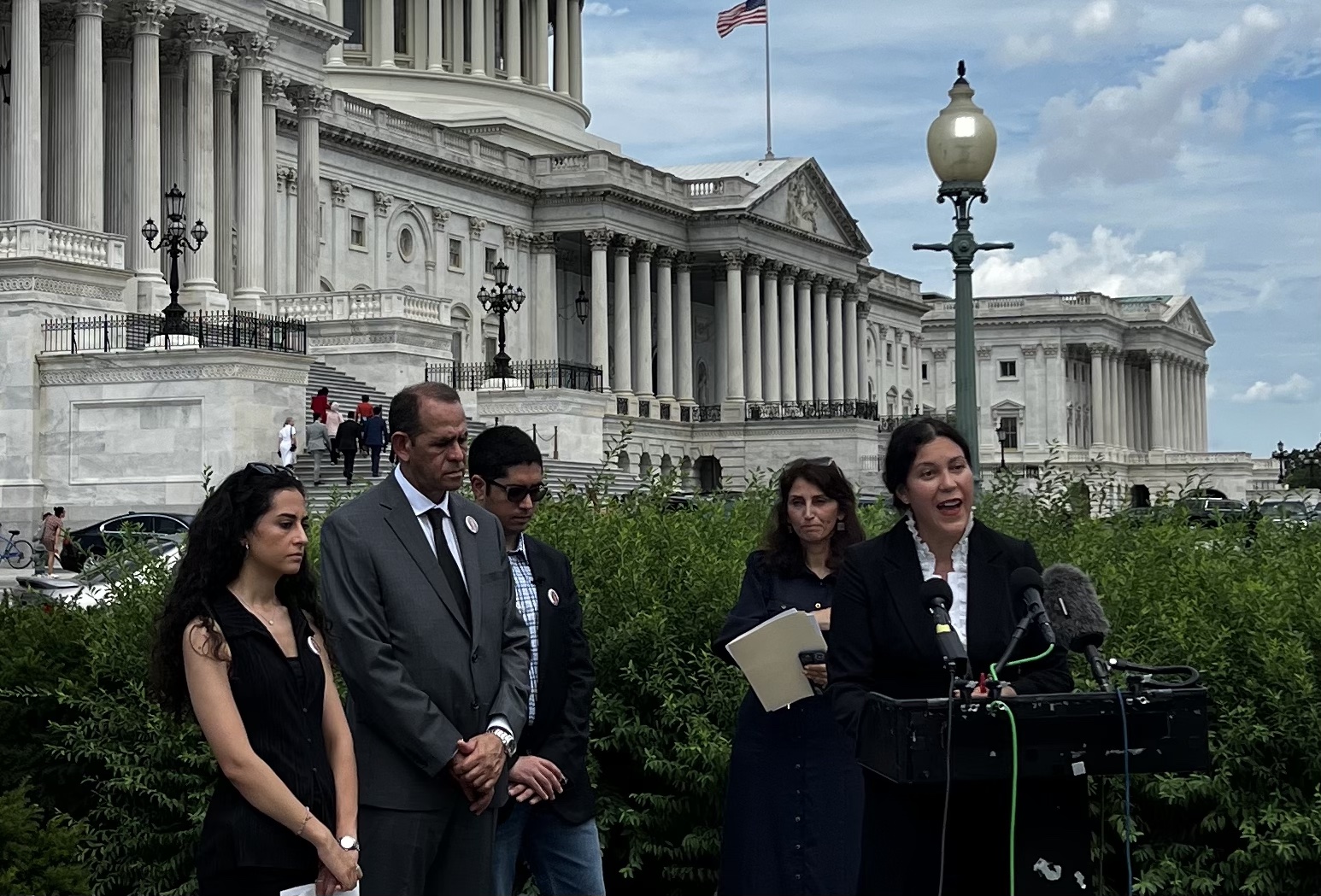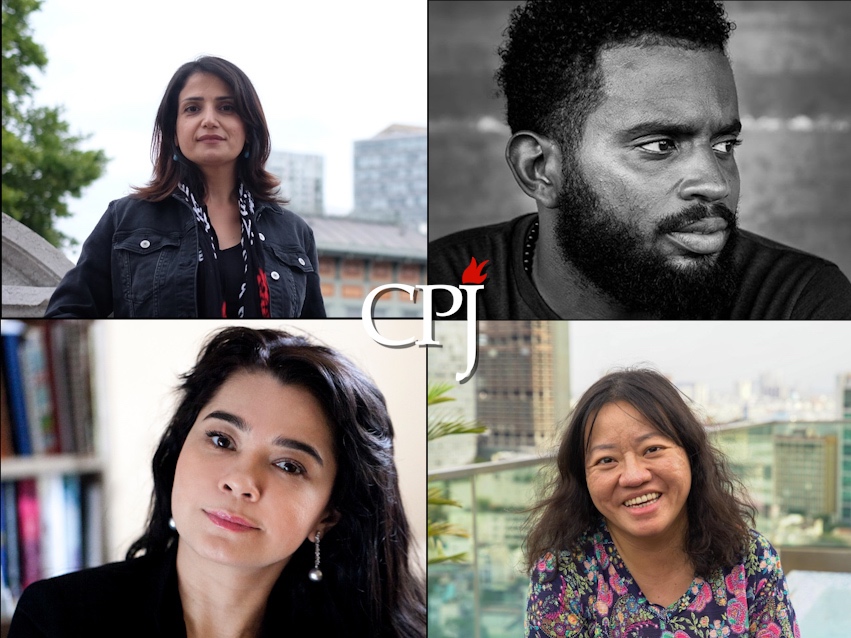
CPJ Advocacy and Communications Director Gypsy Guillén Kaiser speaks at a press conference alongside the family of Shireen Abu Akleh outside of the U.S. Congress. (CPJ)
CPJ continues to demand Biden administration hold those responsible for journalist killings to account
President Biden’s recent Middle East trip was a key opportunity for his administration to support the cause of press freedom. Before and during the trip, CPJ repeatedly urged the administration not to normalize journalist killings and to demand accountability for the deaths of journalists Jamal Khashoggi and Shireen Abu Akleh. We spoke with Senior Middle East and North Africa Researcher Justin Shilad to learn more about the trip and how CPJ is addressing impunity in the region. Learn more »
|
 ICYMI: CPJ to honor four courageous journalists at IPFA ICYMI: CPJ to honor four courageous journalists at IPFA
CPJ recently announced plans to honor four journalists with our 2022 International Press Freedom Awards in November. From Cuba, Iraqi Kurdistan, Ukraine, and Vietnam, our award winners have faced legal harassment, censorship, attacks, and imprisonment, all for their work as journalists. Learn more »
|
|
Must-reads
CPJ spoke with more than 50 Kenyan journalists and press freedom advocates and published the views of six who shared concerns about the upcoming general elections, especially amid sexualized attacks on female reporters. "You’re not metal, you’re not a piece of iron, of course you must be afraid," Judie Kaberia, executive director of a women’s media organization, told CPJ. "The ripple effect is that the women shy away from reporting on politics."
CPJ asked Ruslan Smieshchuk, a reporter for the privately owned Ukrainian TV channel Inter, to recount a single day of reporting when he traveled to cover the bombing of a Ukrainian school. “When you work in a war, you are constantly confronted with naked human grief,” Smieshchuk recounted in his diary, “but you must preserve your ability to empathize with people, your humanity, and at the same time, not burn out from the work, not get traumatized.”
CPJ also spoke with three Togolese journalists one year after news broke about a list of over 50,000 phone numbers, including theirs, which were allegedly selected for surveillance with Pegasus spyware. The state of surveillance has made it increasingly difficult for journalists to find sources who will speak to them. “They have fear to speak with me,” Komlanvi Ketohou said. “Fear that what they say will be listened to by Togolese authorities.”
|